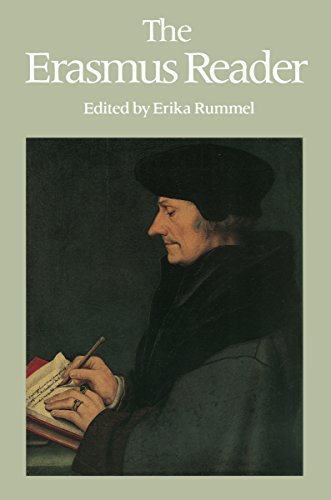What do you think?
Rate this book


'A judicious and discerning selection of large extracts from the "Collected Works of Erasmus" ... thoughtfully designed to include major statements of Erasmus on civility in individual morals, humanistic study and education, the Christian life, reform of the church, and the peaceful constraint of political force. It is to my mind the most comprehensive and penetrating anthology of Erasmus' writing, forcefully revealing his central values.' - Charles Trinkaus, Emeritus Professor of History, University of Michigan
'Rummel's collection makes available readable translations of Erasmus' most original and influential works - the books that made him the intellectual conscience of his generation of scholars and the inspiration of many Reformers who took positions he did not accept. They reveal the biblical scholar, the humanist and literary theorist, and the social critic that Erasmus was, far more fully and vividly than any previous anthology.' - Anthony Grafton, Program in History of Science, Princeton University
'The high quality of the Toronto edition of the "Collected Works of Erasmus" has earned it a central place in the libraries of scholars around the world. "The Erasmus Reader" extends this impact to the carrels and desks of beginning and advanced students of Renaissance and Reformation history.' - Heiko A. Oberman, Director, Division for Late Medieval and Reformation Studies, University of Arizona
376 pages, Kindle Edition
First published November 1, 1990